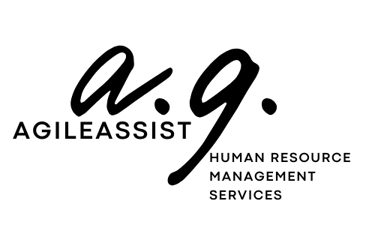Seriously Tho, Why You Gotta Be So Gullible? (Fake News and Employment and Why It Matters)
Okay, real talk, we all love scrolling. TikTok, IG, X (Twitter pa rin yan sa puso natin, lol) – it's where we get our news, trends, and, let's be honest, a whole lotta opinions. But here's the catch: *not everything you see is true*. And believing (and worse, *sharing*) misinformation can seriously mess with your life.
SOCIAL COMMENTARY AND WORKFORCE
CVCII
3/30/20252 min read


Fake News: It's Not Just a Meme, It's a Problem
Think it's harmless to retweet a random conspiracy theory? Think again. False information is like that annoying zit that just won't go away, and it has these consequences:
Political polarization: Fake news thrives on creating division. It feeds into existing biases and makes it harder to have constructive conversations. This is not it, bro and sis.
Erosion of trust: When people constantly encounter false information, they start to lose trust in institutions, the media, and even each other. Di ba ang sad?
Real-world consequences: Remember the pandemic? Misinformation about vaccines led to people making dangerous choices that affected not just themselves, but their communities. This affects us all.
Data Dump: Numbers Don't Lie
Need proof? Check these stats:
MIT Study: Fake news spreads six times faster on Twitter than real news. (Source: MIT Sloan School of Management)
Pew Research Center: Americans who mainly get their news from social media are less likely to be well-informed about important issues. (Source: Pew Research Center)
Stanford History Education Group: They found that young people often struggle to distinguish between news and sponsored content online. (Source: Stanford History Education Group)
See? It's not just me saying this. Legit scientists and researchers are backing this up.
But Wait, There's More! (Your Future is on the Line)
Okay, so you're probably thinking, "Okay, fine, fake news is bad. But what does this have to do with my job?"
Here's the deal: Employers are looking for people who are critical thinkers, problem-solvers, and can make informed decisions. Employers are looking for people who are trustworthy and credible. And if your social media is filled with questionable content, it can raise some major red flags.
Background Checks Are Real: Companies Google you. They check your social media. They want to see what kind of person you are online.
Reputation Matters: Sharing misinformation can make you look uninformed, gullible, or even biased. Is that the vibe you want to give off?
Critical Thinking Skills are HOT: Employers want people who can analyze information, identify biases, and make sound judgments. Being able to spot fake news is a HUGE plus.
Professionalism is Key: Employers prefer candidates who maintain a professional online presence. This means keeping your social media accounts free of controversial or offensive content.
Level Up Your Information Game: No Cap
Okay, so how do you become a more informed citizen and a more attractive job candidate? Here are some tips:
Think Before You Share: Don't just blindly retweet or repost something. Take a moment to consider the source, the information, and the potential impact. Ask yourself: Does this sound too good (or too bad) to be true?
Cross-Reference Everything: Don't rely on a single source. Check multiple news outlets to see if the information is being reported elsewhere.
Fact-Check Like a Pro: Use fact-checking websites like Snopes, PolitiFact, or FactCheck.org to verify claims.
Be Aware of Bias: Everyone has biases. Be aware of your own and how they might influence your interpretation of information.
Follow Reputable Sources: Curate your social media feed to include reliable news organizations, experts, and thought leaders.
Learn Media Literacy: Take a media literacy course or workshop. This will teach you how to critically evaluate information and identify misinformation tactics.
In Conclusion: Stay Informed, Get That Job
Being informed isn't just about staying up-to-date on current events. It's about being a responsible citizen, a critical thinker, and a valuable asset to any employer.
So, the next time you're scrolling through your feed, remember to think before you share. Your future self will thank you. Stay informed bestie! Let's get that job and make a difference in the world. Kaya natin 'to! 😉
Let's talk
careers@agileassisthr.com


